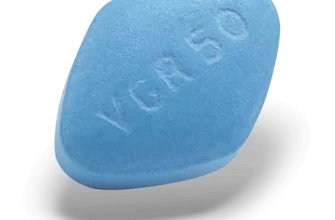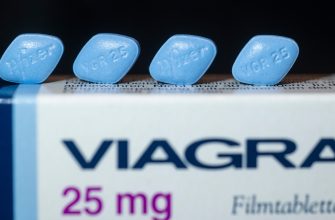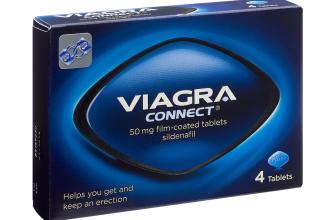Doxycycline hyclate is a broad-spectrum antibiotic frequently prescribed for certain sexually transmitted infections (STIs). However, it’s crucial to understand its specific applications and limitations. It effectively treats chlamydia and gonorrhea, two common bacterial STIs. This means it can help clear the infection and prevent further complications.
Important Note: Doxycycline hyclate is not effective against all STIs. For example, it doesn’t treat syphilis, herpes, or HIV. A proper diagnosis from a healthcare professional is paramount before starting any treatment. Self-treating can be dangerous and delay appropriate medical care.
Dosage and Treatment Duration: The specific dose and duration of doxycycline hyclate treatment depend on the infection being treated and individual factors like age and overall health. Your doctor will determine the right regimen for you. Adherence to the prescribed dosage and treatment schedule is absolutely necessary for successful eradication of the infection. Failing to complete the course of antibiotics can lead to treatment failure and the development of antibiotic-resistant bacteria.
Potential Side Effects: Like all medications, doxycycline hyclate can cause side effects. Common ones include nausea, vomiting, diarrhea, and photosensitivity (increased sun sensitivity). Serious side effects are rare but possible. Consult your doctor immediately if you experience any unusual symptoms during treatment. Open communication with your healthcare provider is vital for safe and effective management of your infection.
- Doxycycline Hyclate for STDs: A Detailed Overview
- Chlamydia Treatment
- Non-Gonococcal Urethritis (NGU) Treatment
- Important Considerations
- Potential Drug Interactions and Precautions
- What STDs are treated with Doxycycline Hyclate?
- Bacterial STIs Treated with Doxycycline Hyclate
- Important Considerations
- Doxycycline Hyclate: Dosage & Precautions
- Other STIs Requiring Different Treatment
- Dosage and Administration of Doxycycline Hyclate for STDs
- Chlamydia
- Gonorrhea
- Other STIs
- Important Considerations
- Side Effects and Potential Risks of Doxycycline Hyclate
- Gastrointestinal Issues
- Sun Sensitivity
- Yeast Infections
- Other Potential Side Effects
- Seeking Medical Attention for STDs
Doxycycline Hyclate for STDs: A Detailed Overview
Doxycycline hyclate is a broad-spectrum antibiotic frequently prescribed for certain sexually transmitted infections (STIs). It effectively treats chlamydia and non-gonococcal urethritis. However, it’s not a cure-all for every STI. Doctors typically prescribe it based on the specific infection diagnosed, considering factors like the patient’s health and the infection’s severity.
Chlamydia Treatment
For chlamydia, the recommended dosage usually involves a single 100mg dose, or a 100mg dose twice daily for seven days. Complete the full course of antibiotics; stopping early can lead to treatment failure and potential complications.
Non-Gonococcal Urethritis (NGU) Treatment
Doxycycline also treats NGU, frequently caused by Chlamydia trachomatis or Mycoplasma genitalium. The treatment regimen is similar to that of chlamydia, often involving a 100mg dose twice daily for seven to ten days. Again, it’s crucial to finish all medication as instructed.
Important Considerations
Doxycycline is not effective against all STIs. Gonorrhea, syphilis, and HIV require different treatments. Always seek professional medical advice for STI testing and treatment. Report any adverse reactions, such as nausea, vomiting, or diarrhea, to your doctor immediately. Proper diagnosis is critical; self-treating STIs can be dangerous.
Potential Drug Interactions and Precautions
Doxycycline can interact with certain medications, including antacids and blood thinners. Inform your doctor about all medications you are currently taking. Pregnancy and breastfeeding should be disclosed, as adjustments to the dosage or a different antibiotic may be necessary. Individuals with known allergies to tetracycline antibiotics should avoid doxycycline.
What STDs are treated with Doxycycline Hyclate?
Doxycycline hyclate is a broad-spectrum antibiotic frequently used to treat several sexually transmitted infections (STIs).
Bacterial STIs Treated with Doxycycline Hyclate
It effectively combats Chlamydia trachomatis, a common bacterial STI affecting both men and women. It’s also a treatment option for Mycoplasma genitalium infections, another bacterial STI.
Doxycycline is often prescribed for the treatment of early-stage Lyme disease, which can be transmitted sexually, although this is less common than tick bites.
Important Considerations
Doxycycline is not a treatment for all STIs. It is ineffective against viral STIs like HIV, herpes, and HPV. Always consult a healthcare provider for accurate diagnosis and treatment of any STI.
Doxycycline Hyclate: Dosage & Precautions
| STI | Typical Dosage | Duration |
|---|---|---|
| Chlamydia trachomatis | 100 mg twice daily | 7 days |
| Mycoplasma genitalium | 100 mg twice daily | 10-14 days |
| Lyme Disease (early-stage) | 100 mg twice daily | 14-21 days |
Note: This information is for educational purposes only and should not be considered medical advice. Always follow your doctor’s instructions regarding dosage and treatment duration.
Other STIs Requiring Different Treatment
Gonorrhea and syphilis require different antibiotics for effective treatment. Never self-treat an STI. Seek professional medical help for accurate diagnosis and appropriate treatment.
Dosage and Administration of Doxycycline Hyclate for STDs
Doxycycline hyclate dosage for sexually transmitted infections (STIs) varies depending on the specific infection. Always follow your doctor’s prescription instructions precisely.
Chlamydia
For chlamydia, a common dosage is 100 mg twice daily for seven days. Ensure you complete the full course of treatment, even if symptoms improve.
Gonorrhea
Doxycycline is often used in conjunction with other antibiotics for gonorrhea treatment. Your doctor will determine the appropriate dosage and regimen based on your individual needs. A single dose is generally not sufficient. Following the prescribed regimen is critical for successful treatment.
Other STIs
Doxycycline may also be prescribed for other STIs like lymphogranuloma venereum (LGV) or non-gonococcal urethritis (NGU), though treatment protocols will vary. Consult your healthcare provider for specific guidance on dosage and duration for your situation. Do not adjust the dosage yourself.
Important Considerations
Take doxycycline with a full glass of water to avoid esophageal irritation. Avoid taking it with dairy products, antacids, or iron supplements as they can hinder absorption. Report any adverse effects to your physician immediately. Reliable birth control is recommended during and after treatment, as doxycycline can interact with some contraceptives. Consistent adherence to the prescribed regimen guarantees optimal treatment outcomes.
Side Effects and Potential Risks of Doxycycline Hyclate
Doxycycline hyclate, while effective against certain STDs, can cause side effects. Common reactions include nausea, vomiting, diarrhea, and heartburn. These usually resolve without treatment. However, more serious, though rare, side effects exist.
Gastrointestinal Issues
Severe stomach upset, including esophageal ulceration and colitis (inflammation of the colon), though uncommon, requires immediate medical attention. Drink plenty of water and avoid lying down immediately after taking the medication to minimize heartburn.
Sun Sensitivity
Doxycycline increases sun sensitivity. Use sunscreen with a high SPF, wear protective clothing, and limit sun exposure, especially during peak hours. Severe sunburn is a possibility.
Yeast Infections
Women are more prone to yeast infections while taking doxycycline. Recognize symptoms like vaginal itching and discharge, and consult your doctor if these occur.
Other Potential Side Effects
Less frequent side effects include dizziness, headache, and photosensitivity. Rare but serious reactions include liver damage and allergic reactions. Seek immediate medical care if you experience severe allergic reactions (like difficulty breathing or swelling of the face, lips, or throat) or signs of liver problems (jaundice, dark urine, pale stools). Always inform your doctor of all medications you are taking, including herbal supplements, before starting doxycycline treatment. Follow the prescribed dosage meticulously and complete the full course of treatment, even if symptoms improve.
Seeking Medical Attention for STDs
Schedule an appointment with a healthcare provider as soon as you suspect an STD. Don’t delay; early diagnosis and treatment are key.
Finding a provider is easier than you think. You can:
- Contact your primary care physician.
- Use online search engines to locate clinics specializing in sexual health.
- Check your insurance provider’s directory for in-network specialists.
- Reach out to local health departments; many offer STD testing and treatment at low or no cost.
During your appointment, be prepared to discuss your sexual history. This helps your doctor accurately diagnose and treat the infection. Provide details about:
- Recent sexual partners.
- Types of sexual contact.
- Symptoms you’re experiencing.
- Your medication history.
Your doctor will likely perform a physical exam and order tests to identify the specific STD. Common tests include urine tests, blood tests, and swabs from affected areas. Testing is quick and relatively painless.
Once diagnosed, your doctor will recommend an appropriate treatment plan, which may include antibiotics like doxycycline, depending on the infection. Follow their instructions carefully, completing the full course of medication, even if symptoms disappear.
After treatment, follow up with your doctor as advised. This helps ensure the infection is cleared and prevents complications.
Remember, protecting yourself and your partners is paramount. Practice safe sex and get tested regularly, especially if you have multiple partners.






